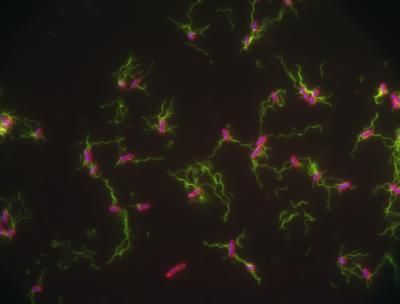First biogeneric therapeutic protein from Fraunhofer Institute introduced to the market
Advertisement
Interferon-beta is used for multiple sclerosis therapy. An interferon-beta protein developed at the Fraunhofer Institute for Interfacial Engineering and Biotechnology IGB, Stuttgart, Germany, in collaboration with CinnaGen company, Tehran, Iran, is now the first therapeutic protein from a Fraunhofer laboratory to be approved as biogeneric / biosimilar medicine.
Interferon-beta, a protein produced naturally in the body, slows down the progression of multiple sclerosis and reduces the relapse rate. Biotechnological techniques make it possible to engineer this endogenous protein in bacterial or mammalian cells. An interferon-beta-1a, whose biotechnical engineering and production up to the pilot scale was optimized at the Fraunhofer Institute for Interfacial Engineering and Biotechnology IGB in collaboration with CinnaGen Company, has now been approved as biogeneric by the Iranian Food and Drug Administration (IFDA). It is produced and marketed in Iran as CinnoVex by the biotech company CinnaGen.
IGB's project group "Genetic Engineering" under Professor Bernd Otto in Hannover, Germany, successfully cloned the human protein into a suitable expression vector and established the production of the natural protein by a stable transfection in a mammalian cell line. The interferon-beta-1a hereby obtained is glycosylated like the human protein. In vitro it shows a higher biological activity than interferon-beta-1b, which is produced in bacteria and is not glycosylated.
In the Fraunhofer IGB Stuttgart laboratories a multi-disciplinary team developed the production of the pharmaceutical protein up to pilot scale. "We have developed the fermentation process as well as the downstream processing, resulting in a highly purified protein. We identified the protein by amino acid sequencing and proved its antiviral effects," explains Professor Herwig Brunner, Director of Fraunhofer IGB. The Iranian Cinnagen gave proof of its clinical effectiveness within three years, including appropriate quality control and clinical trials.




















































